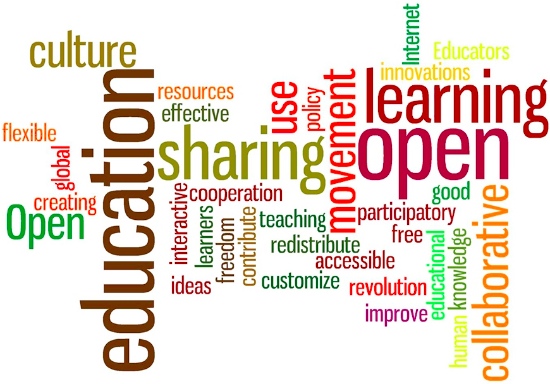Do Open Educational Resources Actually Increase the Digital Divide?

We have often focused on Open Educational Resources (OER) in the Educational Technology Debates. We talked about the need for creating digital content and examples of existing Open Educational Resources. But this month we’re going to ask a controversial question:
Does OER actually expand the digital divide?
The proponents of Open Educational Resources are right to point out the need for digital content. There are few if any locally relevant resources for educators in the developing world – local language being a major issue. So is access – to the hardware required to view content and often the Internet access to reach it. In addition to content, and the access to reach it, teachers need the skills and training to convert good content into great lessons.
But let us say that all these prerequisites exist – content, access, training:
- Does that mean teachers will actually use it?
- And who will they use it with? Students already advantaged with socio-economic resources or the underprivileged learners that are the ostensible focus of many educational technology interventions?
- Most importantly, regardless of the benefits for the privileged, how can we create better OER benefits for the poor?
Please join us this month for what we all expect to be a lively and informative conversation – your input can start right now in the comments below. You can also submit your extended thoughts as a longer independent Guest Post of at least 500 words. Please email Guest Posts to editors@edutechdebate.org. We will be publishing Guest Posts throughout the month to maintain the conversation.

OER certainly will not solve all problems and needs to be used as only a part of larger innovative solutions – but its too much to say that it increases divide
Wayan, I sure agree on language being a major issue, but it's also a major opportunity. It's actually easier to adapt digital content to an other language than it is to print a book.
For a lot of educational activity, language is not a major issue like math, adaptation could be done easily.
A danish company has created a great free website to teach english, and it is set up in many languages (mingoville.com)
Literacy is the most critical, but it's still feasible, if I look at pbs kids, 80% of their activities could be adapted, you could have like franchise of pbs kids and each country could adapt the educational games they find suitable.
OERs can solve great problem for African High educational institutions, where libraries are very poorly equiped or equiped with old books, and governments have not or little financial means. OERs help lecturers and students, then increase quality of teaching/learning and research activities.
Moreover, there is no problem with local languages because they are not used in Universities and High Institutes.
For the scientific domains (math, physics, chemistry and biology), there is practically no need to adapt materials to local conditions).
OER does not necessarily mean digital. Many OER textbooks can be ordered in print format. And most likely much cheaper…
That decreases the digital divide.
David,Interesting point. I never thought of printed OER resources. Could you direct us to a few? Also, do you really think that printed books are more cost-effective than eBooks?
That's indeed an interesting idea. I guess in terms of TOC the difference boils down to what printing+distribution costs vs. the cost of a device (be it a phone, e-reader, etc.) to access the digital OER.
Siyavula does exactly that in South Africa.
http://projects.siyavula.com/